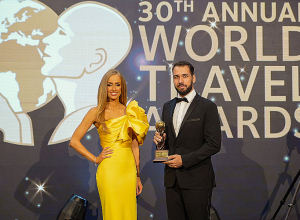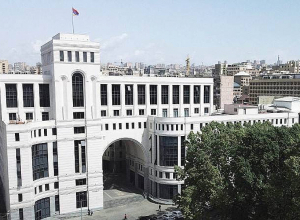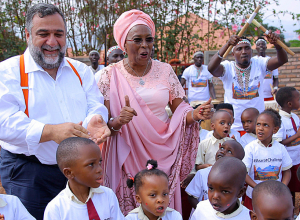Armenia defeated at the ECHR

The European Court of Human Rights today has made another decision against the Republic of Armenia. The Armenian Government must pay 2,400 euros (EUR) (non-pecuniary damage) and EUR 500 (costs and expenses) to 45-year-old Davit Avetisyan. The applicant, Davit Avetisyan, is an Armenian national who was born in 1971 and was serving a prison sentence in a penitentiary institution in Yerevan at the time he submitted his application. The case concerned his inability to examine prosecution witnesses during criminal proceedings against him. In April 2009, Mr Avetisyan, his friend and two other persons visited a mutual friend who was in prison in Goris. His friend, D.T., and the others, D.O. and M.S., bought a cake, which was handed to the prison administration to be delivered to their friend. Later inspection revealed that a syringe containing narcotics had been hidden inside the cake. Mr Avetisyan was charged with acquiring and supplying narcotics. During the investigation, M.S., D.T. and D.O. gave evidence against Mr Avetisyan. Mr Avetisyan was able to confront M.S., but not D.T. or D.O. Judge D. of the Regional Court summoned M.S., D.T. and D.O. to appear at the trial, and later compelled M.S. and D.T. to attend. By the time of trial, however, police reported that M.S. had moved to St Petersburg, while D.T.’s mother had told the authorities that he was in Yerevan for medical treatment. The Regional Court decided to proceed with the trial in the absence of M.S., D.T. and D.O. It convicted Mr Avetisyan, sentencing him to five and a half years’ imprisonment. An appeal to the Court of Appeal was rejected, and a further appeal to the Court of Cassation was declared inadmissible on 20 August 2010. Relying on Article 6 §§ 1 and 3 (d) (right to a fair trial and right to obtain attendance and examination of witnesses) of the European Convention on Human Rights, Mr Avetisyan complained that his trial had been unfair because his conviction had been based entirely on the evidence of D.T., D.O. and M.S., who he had had no fair opportunity to examine. Violation of Article 6 § 1 read in conjunction with Article 6 § 3 (d) – on account of Mr Avetisyan’s inability to question the witnesses against him Advocate Hayk Alumyan submitted the appeal to the ECHR. Mr Alumyan highlights the decision of the Court. “Usually during the preliminary investigation evidence is given against a person, but later those, who gave evidence, don’t appear at the trial. Our courts state that they aren’t able to bring them to the court and their preliminary evidence serves as a basis. I hope that after this decision, our courts will review their decision,” advocate Hayk Alumyan told “A1+”.



